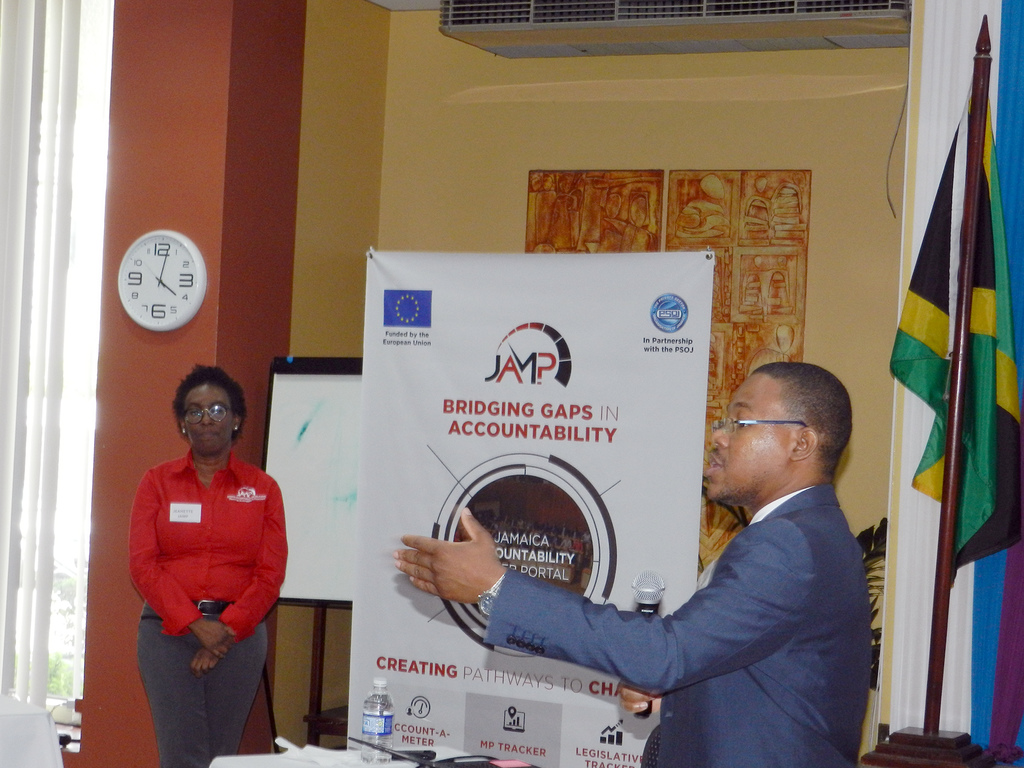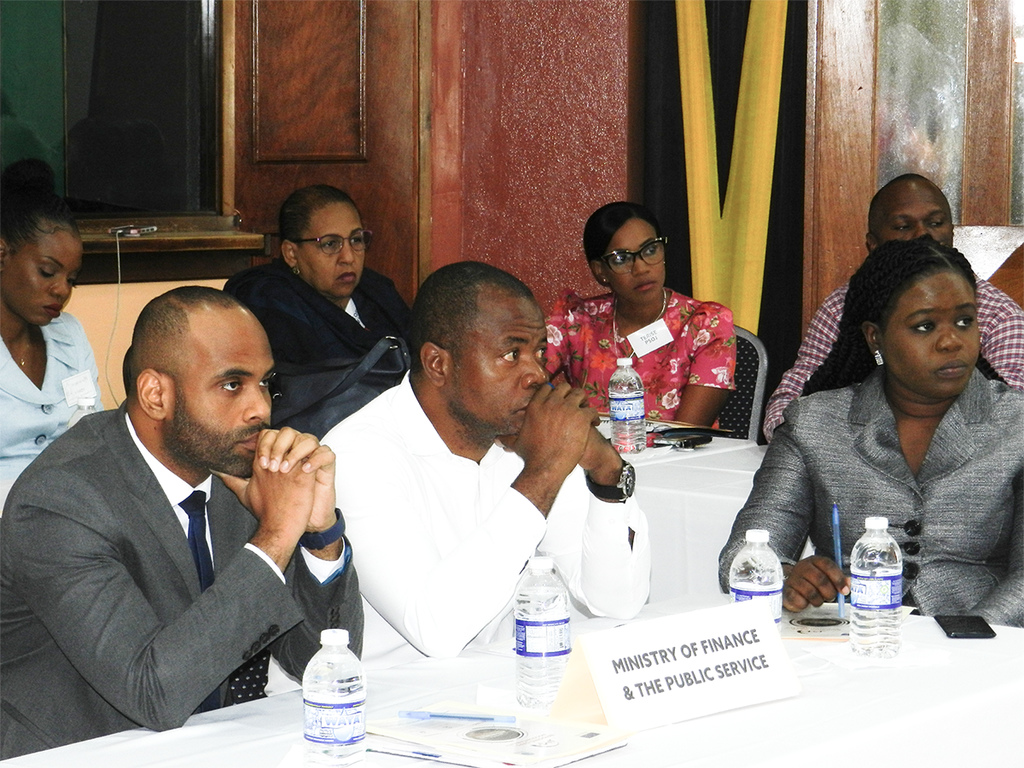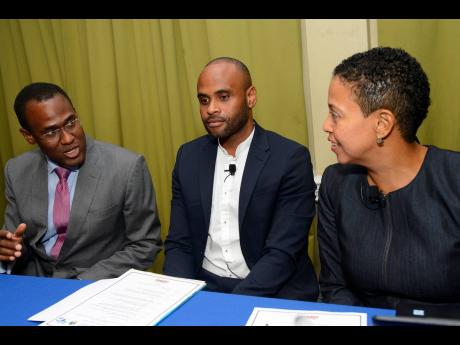Taken from: https://jamaica.loopnews.com/content/public-procurement-workshop-held-non-government-stakeholders-0
The Jamaica Accountability Meter Portal (JAMP) and the Private Sector Organisation of Jamaica (PSOJ) with funding from the European Union, partnered with the Office of the Integrity Commission and the Ministry of Finance to build the competence of non-government stakeholders who are integrally involved in improving compliance and accountability in the procurement process.
Members of the media, civil society associations, and advocates recently gathered at the JAMPRO training room alongside members of the PSOJ, and the Ministry of Finance & the Public Service (MOFPS) to receive a ‘first-of-its-kind’ onboarding by the Integrity Commission regarding the 2015 Public Procurement Act and its 2019 Regulations.
According to Executive Director of JAMP, Jeanette Calder, the session was executed under JAMP’s mandate to strengthen accountability in recognition of the public’s and the Diaspora’s call for better governance.
The Public Procurement Act, passed in October 2015, serves to modernise the law relating to the public procurement of goods, work and services, and seeks to (1) promote integrity and engender public confidence in the procurement process; (2) foster transparency in the procurement process; and (3) encourage participation in public procurement.
“It is fairly well established that citizens and the media are indispensable contributors to stemming corruption and strengthening accountability. Institutions such as the Integrity Commission can only be better served if stakeholders are better- positioned to understand both the Commission’s role in public procurement, as well as our own,” stated Calder.

“Public procurement is undeniably a place of opportunity for illicit transactions, kickbacks and quid pro quos. The Government of Jamaica has taken commendable steps to improve the procurement environment and the workshop provided a space for the Integrity Commission and the Ministry of Finance to share the nuts and bolts of the procurement process so we can, in turn, improve scrutiny and in the long run help the general public hold public officials to account when there are losses to the public purse,” concluded Calder.
Maurice Bennett, Senior Inspector of Non-Construction Contracts at the Integrity Commission and the main presenter for the workshop guided attendees through the public procurement process by: –Identifying the Government’s key players and their roles; Explaining how these players are positioned to support the primary objectives of public procurement; Outlining the basic types of procurement methodologies used in Jamaica, when it is and is not considered suitable to utilise them; Describing the public procurement thresholds and contract approval limits; Highlighting the provisions under the relatively new Procurement Act and how the legislation strengthens the process; Sharing previous challenges and how they were surmounted, as well as existing challenges.
“Government procurement continues to get a lot of interest, mostly because of the negative things” shared Andrei Bennett, Chief Public Procurement Policy Officer at the Ministry of Finance & the Public Service. “The narrative needs to change, and I think forums like these are important in enabling that.”
Speaking in support of the initiative was Greta Bogues, Chair of the PSOJ Corporate Governance Committee.
“The PSOJ is supporting JAMP because we believe it is a very important vehicle that can be utilised to engage the Jamaican citizenry to take control of our country’s resource. Through JAMP’s online tracking platform, accountability data is provided in a simpler form for citizens to be able to understand our parliamentary processes, what to do and where to go to hold people accountable as is required.”
Following this workshop, JAMP will continue to identify and build the capacity of stakeholders that are best positioned to help increase both the demand and the effectiveness of the demand for better governance particularly in the area of public financial management.
“The next in our capacity building workshop series will be “Exploring the Mechanisms for Accountability in the Houses of Parliament. The Parliament is the seat of accountability and we believe that citizens with a more solid and clear understanding for how the institution functions and in particular the mechanisms provided to hold the executive arm of government to account must be better understood by all.” stated Calder.



